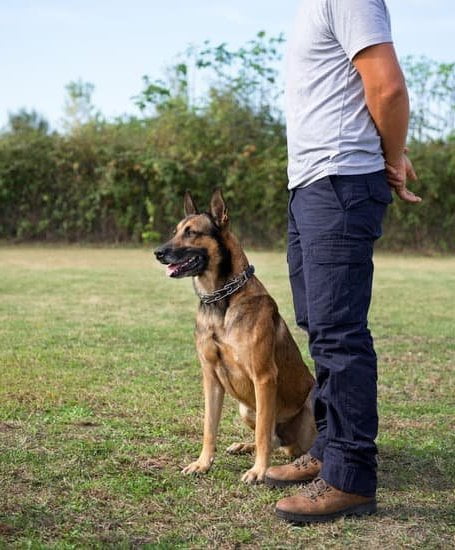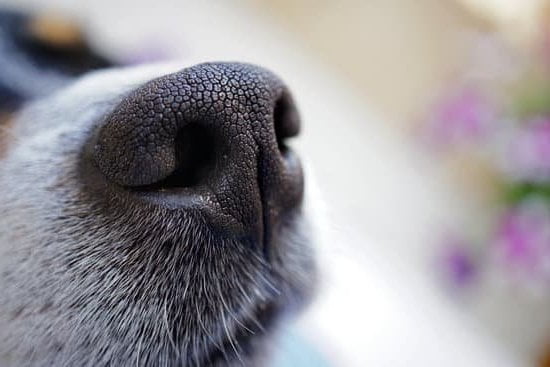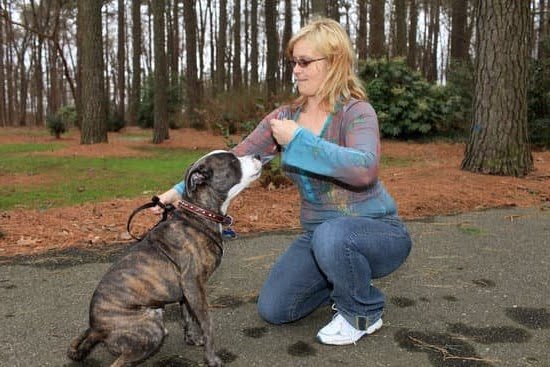Cane Corso dogs are known for their intelligence, loyalty, and protective nature. If you’re wondering how to train Cane Corso dogs effectively, understanding the breed is crucial. Originating from Italy, these powerful yet affectionate dogs require firm yet gentle handling to bring out their best qualities.
Training is essential for Cane Corsos to ensure they can socialize well with people and other animals, as well as exhibit good behavior in various situations. Due to their strong-willed nature, consistent training is key in maintaining control over them and preventing any potential behavior issues from arising. By setting up a structured training schedule and following through with it diligently, you can help your Cane Corso reach its full potential as a well-mannered companion.
In this article, we will delve into the intricacies of training a Cane Corso, starting with basic commands and progressing to more advanced techniques. We will also explore socialization tips to help your Cane Corso interact positively with others and address any behavioral issues that may arise during the training process.
By understanding the unique needs of the Cane Corso breed and implementing effective training strategies, you can build a strong bond with your canine companion while ensuring their well-being and obedience.
The Importance of Training for Cane Corso Dogs
Cane Corsos are known for their intelligence, loyalty, and protective nature. However, without proper training and socialization, these powerful dogs can exhibit undesirable behaviors. Training is crucial to help them become well-behaved companions and showcase their best qualities. In this section, we will delve into the importance of training for Cane Corso dogs and provide valuable tips on how to train them effectively.
Training your Cane Corso not only benefits you as the owner but also ensures the well-being and safety of your dog and those around them. These dogs are strong and muscular, so having control over their actions through training is essential.
By instilling good behaviors early on through consistent training, you can prevent any potential problems in the future. This breed thrives on mental stimulation and physical activity, making training sessions a great way to keep them engaged and satisfied.
When it comes to how to train Cane Corso dogs, it is important to establish yourself as a firm but fair leader. Consistency, patience, and positive reinforcement are key elements in successful training. Creating a training schedule that includes regular sessions will help your Cane Corso grasp concepts better and improve their behavior over time. It’s important to make training sessions fun and rewarding for your dog to ensure they stay motivated throughout the process.
- Start with basic obedience commands such as sit, stay, come, and heel.
- Use treats or favorite toys as rewards for good behavior during training.
- Gradually introduce more advanced commands like fetch or tricks once the basics are mastered.
By investing time and effort into training your Cane Corso properly, you can enjoy a well-mannered and obedient companion for years to come. Remember that every dog is different, so be patient with the process and tailor your approach to suit your individual dog’s needs. With consistency and positive reinforcement, you can successfully train your Cane Corso to be a well-behaved member of your family.
Setting Up a Training Schedule for Your Cane Corso
Training your Cane Corso requires consistency, patience, and a well-thought-out schedule. Setting up a training schedule is crucial to ensure that your dog receives the necessary guidance and reinforcement regularly. One of the key aspects of how to train Cane Corso dogs is establishing a routine that covers various training aspects such as basic commands, advanced techniques, and socialization.
When creating a training schedule for your Cane Corso, it is essential to consider their age, temperament, and energy level. Younger dogs may need shorter but more frequent training sessions compared to older ones. Allocate time for each session based on your dog’s attention span and energy levels. Consistency is vital, so try to stick to the same time slots every day for training to help your dog understand the routine.
Incorporate a mix of basic commands like sit, stay, come, and heel into your Cane Corso’s daily training schedule. Once they have mastered these commands, you can gradually introduce more advanced techniques like agility training or scent work to stimulate their minds further. Remember to keep training sessions fun and rewarding to keep your Cane Corso engaged and motivated throughout the process.
| Training Schedule Component | Importance |
|---|---|
| Consistency | Essential for effective learning |
| Basic Commands Practice | Lays foundation for advanced training |
| Varying Techniques | Keeps dog engaged and stimulated mentally |
Basic Training Commands for Cane Corso Dogs
Training your Cane Corso dog with basic commands is essential for their overall obedience and behavior. These commands will not only help you communicate effectively with your pet but also ensure their safety in various situations. Here are some fundamental commands that you can start incorporating into your training sessions:
- Sit: Teach your Cane Corso to sit on command by using a treat or toy as motivation. Hold the treat above their head and slowly move it back towards their tail while saying the command “sit.” Once they are in a sitting position, reward them with the treat.
- Stay: The “stay” command is crucial for keeping your Cane Corso from wandering off or running into dangerous situations. Start by making them sit, then take a step back and hold out your hand in a “stop” gesture while saying “stay.” Gradually increase the distance and duration of the stay as they become more proficient.
- Come: Teaching your Cane Corso to come when called is essential for their safety, especially when off-leash. Use a long line or leash to prevent them from wandering too far, then call their name followed by the command “come.” Reward them generously when they respond promptly.
Consistency is key when training these basic commands with your Cane Corso. Practice these commands daily in short, positive training sessions to reinforce good behavior and solidify their understanding of what is expected from them. Remember to use positive reinforcement techniques such as treats, praise, and playtime to motivate and reward your dog for following commands correctly.
By mastering these basic training commands, you will lay a strong foundation for further advanced training techniques with your Cane Corso. With patience, consistency, and positive reinforcement, you can successfully train your beloved companion to be well-behaved and obedient in various situations throughout their life.
Advanced Training Techniques for Cane Corso Dogs
Agility Training
One of the advanced training techniques that can be particularly beneficial for Cane Corso dogs is agility training. This type of training involves navigating through obstacle courses, including tunnels, jumps, weave poles, and more. Agility training not only helps keep your Cane Corso physically fit but also sharpens their mental acuity. It challenges them to think on their feet and react quickly to different cues.
Scent Training
Another valuable technique for advanced training with Cane Corso dogs is scent training. These dogs have a strong sense of smell, making them excellent candidates for activities that involve tracking scents. You can start by introducing your Cane Corso to different scents and teaching them how to discriminate between them. Scent training can be a fun way to engage your dog’s natural instincts while providing mental stimulation.
Off-Leash Training
Off-leash training is a crucial skill to master with any dog breed, including the powerful and independent Cane Corso. Teaching your Cane Corso to obey commands such as recall (coming when called) even when off-leash can enhance their freedom during outdoor activities while ensuring their safety.
It requires patience, consistency, and plenty of practice in various environments to perfect this advanced skill. By gradually increasing the level of distractions during off-leash training sessions, you can build your Cane Corso’s reliability off-leash while fostering a strong bond based on trust.
Socialization Tips for Cane Corso Dogs
Cane Corsos are known to be loyal and protective dogs, but proper socialization is essential to ensure they are well-rounded and well-behaved in various situations. Socialization is the process of introducing your Cane Corso to different people, animals, environments, and experiences in a positive way. This helps them become more confident, less anxious, and better able to navigate the world around them.
One key aspect of socialization for Cane Corso dogs is early exposure to different environments, such as parks, beaches, busy streets, and even indoor spaces like shopping malls. This exposure helps them feel comfortable in various settings and reduces the likelihood of fear or anxiety in unfamiliar places. Additionally, introducing your Cane Corso to different sounds, sights, smells, and textures can help desensitize them to new stimuli.
Another important aspect of socialization for Cane Corso dogs is introducing them to a variety of people and animals. This includes children, adults of all ages, other dogs (of varying sizes and breeds), as well as other pets like cats.
By allowing your Cane Corso to interact positively with different individuals and animals from a young age, you can help prevent any fear-based aggression or reactive behavior as they grow older. Remember to always supervise these interactions and intervene if needed to prevent any negative experiences for your dog.
Cane Corsos are naturally protective dogs, so proper socialization plays a crucial role in helping them distinguish between friend and foe. Teaching your Cane Corso how to appropriately greet strangers without being overly aggressive is essential for their safety as well as others’.
Positive reinforcement should be used during socialization training sessions with treats or praise when your dog displays calm behavior around new people or animals. With patience, consistency, and positive experiences, you can successfully socialize your Cane Corso into becoming a well-adjusted member of the community.
| Socialization Tips | Cane Corso Dogs |
|---|---|
| Early exposure to different environments | Helps reduce anxiety in unfamiliar settings |
| Introduce them to a variety of people and animals | Prevents fear-based aggression |
| Use positive reinforcement during training | Promotes calm behavior around strangers |
Handling Behavioral Issues in Cane Corso Dogs
Cane Corsos are loyal and protective dogs by nature, but like any breed, they may exhibit behavioral issues if not properly trained. It is important for dog owners to address these behavioral issues early on to ensure a well-behaved and well-adjusted pet. In this section, we will explore common behavioral issues that Cane Corso dogs may face and how to effectively handle them through training and positive reinforcement.
Aggression
One of the most common behavioral issues in Cane Corso dogs is aggression. Due to their protective instincts, Cane Corsos may display aggression towards strangers or other animals if not socialized properly. To address aggression in your Cane Corso, it is essential to start training early and expose them to various environments and situations. Positive reinforcement techniques, such as rewarding good behavior with treats or praise, can help curb aggressive tendencies in these powerful breeds.
Separation Anxiety
Cane Corsos are known for their strong bonds with their owners, which can sometimes lead to separation anxiety when left alone for extended periods. Signs of separation anxiety in Cane Corsos may include excessive barking, destructive behavior, or attempts to escape.
To prevent or manage separation anxiety in your Cane Corso, establish a consistent routine for leaving and returning home, provide engaging toys or activities for mental stimulation while you’re away, and gradually desensitize your dog to your absence through short practice sessions.
Leash Reactivity
Another common behavioral issue that Cane Corso owners may encounter is leash reactivity. When out on walks, Cane Corsos may exhibit behaviors such as pulling on the leash, lunging towards other dogs or people, or barking excessively. Training techniques such as desensitization exercises, counter-conditioning methods, and teaching alternative behaviors can help reduce leash reactivity in Cane Corsos. Consistent training and positive reinforcement will be key in addressing this issue effectively.
Reward-Based Training vs Punishment-Based Training for Cane Corso Dogs
Training methods for dogs have evolved over the years, and there is an ongoing debate on whether to use reward-based training or punishment-based training. When it comes to Cane Corso dogs, a strong and intelligent breed, it is crucial to choose the right training approach to ensure their well-being and obedience.
Reward-based training focuses on positive reinforcement, where desired behaviors are rewarded with treats, praise, or playtime. This method promotes a strong bond between the owner and the dog, as well as encourages good behavior through positive associations. Cane Corso dogs respond well to this type of training because they are eager to please their owners.
On the other hand, punishment-based training relies on corrections such as verbal reprimands, leash corrections, or even physical punishment for undesirable behaviors. While this method may yield immediate results in some cases, it can lead to fear, anxiety, and aggression in Cane Corso dogs. It is important to note that punishment-based training can damage the relationship between you and your dog and may result in long-term behavioral issues.
Troubleshooting Common Training Challenges With Cane Corso Dogs
Cane Corso dogs are known for their loyalty, intelligence, and protective nature. However, like any other breed, they can present their own set of training challenges. Understanding these common issues and implementing effective strategies to address them is crucial in ensuring a well-behaved and obedient Cane Corso.
One common training challenge with Cane Corso dogs is their tendency to exhibit stubborn behavior. These dogs have a strong will and independent nature, which can make them resistant to training at times. To overcome this challenge, consistency is key. It’s important to establish yourself as the pack leader and set clear boundaries from the beginning. Using positive reinforcement such as treats, praise, and toys can also motivate your Cane Corso to comply with commands.
Another challenge that Cane Corso owners may encounter is aggression towards other animals or unfamiliar people. This breed has a strong prey drive and protective instincts, so early socialization is essential in preventing aggressive behavior.
Gradually exposing your Cane Corso to different environments, people, and animals in a controlled manner can help reduce their tendencies towards aggression. Additionally, enrolling your dog in obedience classes or working with a professional trainer can provide guidance on how to manage and modify these behaviors effectively.
Patience, consistency, and positive reinforcement are crucial components when troubleshooting training challenges with Cane Corso dogs. By understanding the breed’s natural tendencies and utilizing appropriate training techniques, you can successfully address common issues such as stubbornness and aggression. Remember that every dog is unique, and what works for one Cane Corso may not work for another. Tailoring your approach based on your dog’s personality and behaviors will ultimately lead to a well-trained and well-adjusted companion.
Conclusion
In conclusion, training a Cane Corso can be a fulfilling and rewarding experience for both you and your furry companion. By understanding the breed’s characteristics, setting up a consistent training schedule, teaching basic and advanced commands, socializing effectively, addressing behavioral issues, and choosing the right training approach, you can help your Cane Corso reach its full potential as a well-behaved and obedient pet.
Remember that patience, consistency, and positive reinforcement are key when it comes to training Cane Corso dogs. Whether you are teaching them basic obedience commands or working on more advanced techniques, always focus on building trust and strengthening your bond with your canine friend. With the right guidance and approach, you can mold your Cane Corso into a well-trained and well-adjusted member of your family.
So if you’re wondering how to train Cane Corso dogs effectively, remember that it all starts with understanding their needs and providing the right kind of guidance. By following the tips and techniques outlined in this article, you can embark on an exciting journey of training your Cane Corso to be a well-mannered and happy companion.
Celebrate each milestone achieved in training and enjoy the fruits of your labor as you watch your beloved Cane Corso flourish into a well-trained dog.
Frequently Asked Questions
Are Cane Corso Dogs Easy to Train?
Cane Corso dogs are known to be intelligent and eager to please, making them relatively easy to train with the right approach. Consistency, positive reinforcement, and patience are key when training these powerful and loyal dogs.
How Do You Discipline a Cane Corso?
When it comes to disciplining a Cane Corso, positive reinforcement is usually more effective than punishment. Establishing clear rules and boundaries early on, using firm but not harsh commands, and rewarding good behavior are important strategies for discipline. It’s also crucial to understand that physical punishment can lead to fear or aggression in this breed.
How Do You Train a Perfect Cane Corso?
Training a perfect Cane Corso involves starting at an early age with socialization, basic obedience commands, and leash training. Establishing yourself as the pack leader, being consistent in your training methods, and providing mental stimulation are essential for shaping a well-behaved companion.
Additionally, regular exercise and plenty of positive reinforcement will help mold your Cane Corso into a obedient and well-adjusted dog.

Welcome to the blog! I am a professional dog trainer and have been working with dogs for many years. In this blog, I will be discussing various topics related to dog training, including tips, tricks, and advice. I hope you find this information helpful and informative. Thanks for reading!





